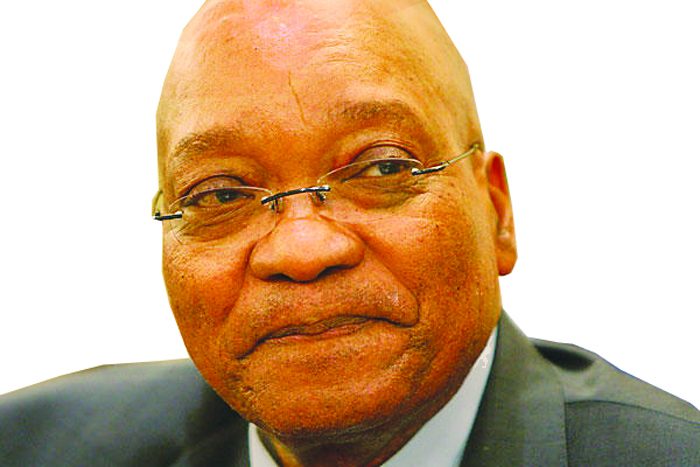


 THE silencing of Lindiwe Zulu, the spokesperson for South African President Jacob Zuma’s facilitation team in the local dialogue could signal a possible waning of the African National Congress (ANC) leader’s influence in Zimbabwean politics.
THE silencing of Lindiwe Zulu, the spokesperson for South African President Jacob Zuma’s facilitation team in the local dialogue could signal a possible waning of the African National Congress (ANC) leader’s influence in Zimbabwean politics.
Zuma’s influence also took a battering after the Constitutional Court ruled last month that elections be held before the end of July, ignoring advice given to the bickering coalition partners by the Southern African Development Community (SADC), of which the ANC leader is their point person on Zimbabwe, that they be delayed by at least two weeks to give more time to the implementation of an election roadmap.
With the unity government now about to be replaced by a new administration, Zuma’s role is diminishing.
ZANU-PF has not been comfortable with Zuma’s mediation efforts in Zimbabwe, expressing disquiet over some of his reports, especially the one delivered at the 2011 SADC Troika summit in Livingstone, Zambia.
The Lusaka report described ZANU-PF’s push for early polls without reforms as counter-productive.
In the aftermath of its delivery, ZANU-PF politburo members such as Jonathan Moyo publicly derided the South African President.
The State media also attacked Zuma in editorials for what was termed his “erratic behaviour”, that was alleged to have resulted in him becoming a huge liability not only to Zimbabwe, but Africa.
“By pandering to the idle chatter of some political players here, Mr Zuma is compromising his integrity as SADC mediator,” one of the editorials stated.
President Robert Mugabe later said “serious inaccuracies” relating to that meeting needed to be addressed.
That same year, the party’s hardliners latched on Zuma’s assumption of the chairmanship of SADC’s Organ on Politics, Defence and Security in August (2011) as reason for him to step aside, citing conflict of interest with his mediation role.
But when the strategy failed all the guns were turned on her vocal international relations advisor, Zulu, who is pushing for an uncontested poll in Zimbabwe through the implementation of a SADC-approved election roadmap.
Zulu’s crime, according to ZANU-PF, appears to be her criticism of the special voting that took place last week resulting in nearly 40 000 policemen failing to vote, a development that led the diplomat to conclude that things were “not looking good” ahead of the crucial July 31 poll.
But long before her latest remarks, Zulu had rubbed those in ZANU-PF the wrong way resulting in the late vice president John Nkomo lodging a complaint against her with the ANC in 2011.
This was after she was quoted in the party’s weekly newsletter, The ANC Today, in May that same year alleging that Global Political Agreement negotiators had told the facilitation team that they were “concerned about the succession law should (President) Mugabe die or retire before the adoption of a new constitution”.
Three weeks ago, President Mugabe lambasted Zulu as a street woman during the launch of his party’s election manifesto in Highfield, while Prime Minister Morgan Tsvangirai defended her.
But pressure continued to pile on Zuma to silence her, resulting in the South African leader this week stopping Zulu from making public pronouncements on Zimbabwe.
ZANU-PF had drawn parallels with the era of former South African president Thabo Mbeki’s who was involved in the initial delicate mediation and favoured quiet diplomacy.
Critics say the push to silence Zulu signal ZANU-PF’s intolerance for reforms that may act as a signal to anyone in SADC or the African Union (AU) to tread carefully for reporting anything untoward in Zimbabwe’s polls.
President Mugabe, who has previously pulled Zimbabwe out of the Commonwealth due to differences over the land reform, has recently said the country could pull out of SADC if regional countries did “stupid things.”
A statement from Zuma’s office said some of the comments made about Zimbabwe had been unauthorised, unfortunate and inaccurate, but it did not refer to Zulu by name even though she had evolved into the spokesperson of the facilitation team on the local political dialogue.
This week, political analyst Ricky Mukonza, said previous criticism of Zuma and the latest outcry over Zulu have led to what appears to be unfriendly relations between Zuma as the mediator and ZANU-PF as a party to the mediation process.
Mukonza also noted that the Constitutional Court verdict that ruled that polls should be held by July 31 had made ZANU PF realise its wish of an early election without a direct confrontation with SADC or the AU.
Their argument in this case was that they are practicing the rule of law by abiding by court rulings. The party has also raised their sovereignty argument, that SADC cannot force the Zimbabwean government to act contrary to court rulings and by interfering in its internal affairs.
“It is reasonable to view the ConCourt case and its outcome as an attempt to diminish the role of the mediator, President Zuma. The AU’s endorsement of the July 31 date has further diminished the role that Zuma plays as a mediator,” said Mukonza.
“Zuma is cornered and cannot come out and speak against the holding of elections on July 31, but rather he has to agree with what is going on, even against his judgment and that of his mediation team.”
Another political analyst, Madock Chivasa, said the lesson that could be drawn from these latest developments by all those who are intent on ending ZANU-PF’s rule is that, first and foremost they are their own liberators.
“It shows that all the hope that was based on her (Zulu) comments is now water under the bridge. This is also a good lesson to Zimbabweans that they must not rely on outsiders to solve their problems. The solution must be our own initiative as Zimbabweans not SADC, AU, EU (European Union) or any other international organisations,” said Chivasa.
He added that the MDC formations must also learn that it is more important to mobilise locals to meet their political ends than rushing to SADC.